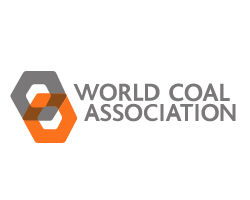COP23 Focuses on Paris Rulebook

By Liam McHugh
November 18, 2017 - Over the last two weeks, the World Coal Association has been in Bonn attending the COP-23 climate talks. While held in the old German capital, this year’s presidency is held by Fiji, leading several media outlets to dub the setting as ‘Fiji on the Rhine’. Presiding over its first COP, the small Pacific island nation aimed to highlight both the needs of vulnerable parties as well as island nations’ climate action leadership.
This year’s event also marks the first COP since President Trump’s announcement that the US intends to withdraw from the Paris Agreement. Delegates have been eager to understand the implications of the decision for US engagement on climate and energy issues.
At its core, though, the major focus for this year’s COP negotiations was to progress the Paris Agreement rulebook. The challenge of this task should not be underestimated - negotiators have a long list of outstanding items with an agreement at last year’s talks to conclude the implementing infrastructure by next year’s talks in Poland.
The Bonn talks have been a significantly smaller affair than recent COPs. Close to 40,000 delegates attended COP21 which delivered the Paris Agreement; similar, albeit smaller, numbers attended climate talks either side of the landmark deal. According to the UNFCCC, less than 20,000 were expected to participate at COP23. It is perhaps fair to suggest that this was a deliberate decision to transition the talks away from the political focus of recent years to a more technical emphasis to advance the rulebook and resolve key outstanding issues.
Supporting this observation, the COP was split into two sites, one for negotiations and the other for side events. The set-up had limited potential for interaction between parties and made the suggestion that side events inform the negotiations rather dubious.
As ever, the side events focused on an eclectic array of climate and energy related issues. Carbon capture and storage (CCS) received significantly more interest at this year’s event compared to previous years, with several official side events and presentations at country and NGO pavilions. This could reflect a growing acceptance among parties of the critical role that CCS will need to play in meeting Paris commitments.
In other side events of note, a roundtable titled ‘The Role of Cleaner and More Efficient Fossil Fuels and Nuclear Power in Climate Mitigation’ organised by the US delegation drew hundreds of attendees. As the sole side event organised by the official US delegation, the panel discussion was a major draw card for both delegates and the media, who had converged in Bonn. Equally, the event became a lightning rod for environmental groups who attempted to depict the panel discussion as a trade show for fossil fuel industries. Despite this portrayal – which was repeated in many news outlets – the panel gave an interesting insight into potential future pathways for US climate and energy policy. Moreover, the event injected some much needed reality into the COP discussions; as one commentator noted ‘The Trump administration should be given credit for breaking into the echo chamber that conferences like this often foster‘.
WCA is committed to supporting the constructive climate talks and we are looking forward to participating in the discussions next year.
Liam McHugh is WCA's Policy Manager.
.jpg)
Liam McHugh

